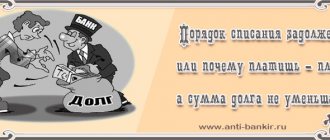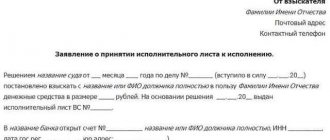Deadline for payment of fines
The legislation provides for a certain period for payment of traffic fines. This year, certain legislative changes have been made that allow drivers to pay their fines over a longer period of time.
In particular, if previously the driver was given 30 days to pay the fine, today this period is 60 days. At the same time, the legislation also provides for a certain period for appealing the decision to impose this administrative penalty. This period is 10 days.
In this case, the period provided for paying the fine begins to be calculated after the end of the appeal period, and not from the moment this type of administrative punishment is imposed. Accordingly, the driver has 70 days to pay his fines. In this case, this period begins to be calculated from the moment the traffic police receives a decision on imposing a fine.
How can I pay a fine?
Traffic police fines can be paid either in full or in parts. Sometimes the fine amount is very large, and the driver cannot pay it right away. In such cases, the driver may receive:
- deferment of payment for a period of one month;
- installment payment, the period of which is 3 months.
A deferment or installment plan is provided by the court or body that imposed the traffic police fine. To do this, the driver must submit a corresponding application, which must be sent for consideration before the expiration of the period provided for appealing traffic police fines. The application is signed by the driver or his legal representative.
To receive a deferment or installment plan, the driver must prove the impossibility of paying the imposed fine. To do this, he must present certain evidence indicating that he cannot pay the amount of the fine within the period prescribed by law. A certificate from your place of employment can serve as such evidence.
How to defer execution
IDEA 1 (UNSUITABLE). “I will not receive documents from the bailiff”
Please note that you are still considered to have been notified of all enforcement actions and enforcement actions against you if:
- you refused to receive a document regarding enforcement proceedings
- you did not appear for this document after receiving a postal notice
- an unauthorized employee of the organization signed for receipt of the summons
- you did not report a change of address if it occurred after the decision to initiate enforcement proceedings was issued
Attention
Bailiffs communicate with the debtor organization at its legal address
And all deadlines begin to run from the day following the day from which you are “considered notified.” For example, on August 7, you refused to sign for a copy of the resolution to initiate enforcement proceedings. From August 8, the countdown of 5 working days for voluntary compliance with requirements begins - from August 15, the bailiff can begin forced execution and collect an enforcement fee from you.
This is important to know: Deadline for payment of alimony under a writ of execution
ADVICE
Do not ignore notices and summonses from bailiffs, notify them in advance of a change of location, check your mail at your address indicated in
IDEA 2 (SUCCESSFUL). “I will ask for a delay or installment plan”
Submit a free-form application
- on deferment of execution so that enforcement actions are not carried out and enforcement measures are not applied within a certain period;
- about installment execution so that execution proceeds in stages.
- justify the reasons for the transfer. Their list is not established by law, so any of your arguments will be considered. For example, indicate that fulfillment on time is impossible because:
- a one-time execution will undermine your property position, which can lead to bankruptcies
— as part of enforcement proceedings, your accounts have been frozen, making it impossible to complete the construction of a profitable facility and cover the debt
- confiscation of agricultural equipment from an agricultural producer will not allow growing a new crop and paying off the debt from the proceeds from its sale
- propose a debt repayment schedule;
- indicate that postponing the payment deadline will not violate the interests of the creditor.
As documents confirming your financial position, provide certificates from the banks in which you have accounts, balance sheets as of the last reporting date, copies of contracts (for example, for upcoming deliveries of your products) as confirmation of the possibility of fulfilling your requirements in the future.
Do not forget to give the bailiff a copy of the petition submitted to the court for a deferment/installment plan - during the period the court is considering such an application, the bailiff should not collect enforcement fees
IDEA 3 (NOT BAD). “I’ll go to peace with the recoverer”
A settlement agreement can be concluded at any stage of the enforcement process, but it must be approved by the court. To make this event as effective as possible for you, you need to do the following.
STEP 1. Agree with the creditor on a debt repayment schedule, write it down in the agreement.
STEP 2. Submit to the court that issued the writ of execution a copy of the agreement and an application for its approval. The court, within 1 month from the date of receipt of the agreement, will either approve it or not if it considers, for example, that it violates the rights of the claimant
STEP 3. As soon as possible, hand over to the bailiff copies of the agreement and the application for its approval with stamps from the court office. Together with them, submit an application to the bailiff with a request not to collect the enforcement fee from you (if he has not yet issued a ruling on its collection), since you have taken all measures to pay off the debt by agreement with the collector. Some courts recognize this as extraordinary and valid circumstances that arose after the initiation of enforcement proceedings, in which the enforcement fee may not be collected
If you have already paid off part of the debt or are planning to pay off in the near future, indicate this in your application.
STEP 4. As soon as the court makes a ruling on approval of the settlement agreement, transfer it to the bailiff so that he can issue an order to terminate enforcement proceedings
If you haven't paid...
If for some reason the driver has not paid the traffic fine, he will have to be ready to “meet” with the bailiffs soon. When will the traffic police fine be handed over to the bailiffs?
In accordance with current legislation, the traffic police fine is transferred to the bailiffs after 90 days from the date of this decision. Those. if the driver was fined, but he did not pay the fine within 90 days, then enforcement proceedings will be initiated against him.
In particular, the bailiff decides to initiate enforcement proceedings. The decision is made within 7 days from the moment the case is transferred to the bailiffs. In accordance with current legislation, the decision to initiate enforcement proceedings must contain:
- information about the case in which it is being initiated;
- defendant's details;
- the amount of debt that must be collected.
After the initiation of enforcement proceedings, the decision to initiate it is sent to the debtor. The debtor receives the decision by mail at his permanent residence address. The decision also indicates the period during which the debtor must voluntarily pay the amount of the fine, otherwise compulsory measures will be taken against him.
Refusal to initiate enforcement proceedings
As soon as the application and the writ of execution are submitted to the bailiff, he must make a procedural decision - to initiate proceedings or issue a refusal. The grounds for refusal must comply with Art. 31 of Law No. 229-FZ:
- if the writ of execution was received without an application or it was not signed;
- if the documents are submitted to the wrong department of the FSSP (except for cases when the application is submitted to the Chief Bailiff of a constituent entity of the Russian Federation);
- if the period (3 years) for presenting the document for execution has expired, and the applicant has not applied for its restoration;
- if the document has already been submitted to the FSSP, but the case was terminated on the grounds specified in Art. Art. 43 and 103 of Law No. 229-FZ (for example, upon the death of the debtor, after which there was no successor or heirs);
- if proceedings on the same document were previously completed;
- if the act of the court or other department for which the writ of execution was issued has not entered into force (for example, if the court decision was appealed and the case was returned for new consideration);
- other grounds listed in Art. 31 of Law No. 229-FZ.
This is important to know: Resolution on initiating enforcement proceedings on child support
Having established at least one of these circumstances, the bailiff is obliged to issue a decision to refuse to initiate proceedings. A copy of the resolution is sent to the claimant no later than the next day. The applicant can challenge the decision, or eliminate the grounds for refusal and resubmit the documents to the FSSP.
Appeal against refusal to initiate IP
If the applicant does not agree with the decision to refuse to initiate an IP, he can file a complaint. The appeal procedure is provided for in Chapter 18 of Law No. 229-FZ:
- the complaint must be filed no later than 10 days after the decision is made;
- You can file a complaint in the order of subordination, i.e. through a higher official of the FSSP, or to the court;
- a complaint filed in the order of subordination must be considered no later than 10 days;
- a complaint received by the court is considered within 10 days according to the rules of Law No. 229-FZ, the Code of Civil Procedure of the Russian Federation or the Arbitration Procedure Code of the Russian Federation.
If the arguments of the complaint are confirmed, the decision to refuse is cancelled. The bailiff who issued the refusal will be obliged to reconsider the application within a period not exceeding 10 days.
How to pay and consequences of non-payment
If the fine was transferred to the bailiffs and enforcement proceedings were initiated, then the debtor can pay the amount of the fine only within the framework of this proceeding. Moreover, in addition to the amount of the fine, he must also pay a certain amount of money for carrying out enforcement actions.
If a debtor evades payment of the fine, he may be held administratively liable as part of enforcement proceedings. In particular, the following administrative measures may be applied to a driver who has not paid a traffic fine:
- ban on traveling abroad;
- administrative arrest;
- compulsory work.
After the fine has been handed over to the bailiff, by decision of the bailiff, all property of the debtor, including bank accounts, is seized. Thus, the debtor cannot carry out any transactions, cash out his funds, etc. If the debtor is officially employed, then his wages are also seized.
If the debtor does not have enough funds, then a seizure is imposed on his property, which can subsequently be confiscated and sold at auction at a fairly low price.
Failure to pay the fine may result in the loss of the debtor's property.
Re-opening of production
Proceedings can be resumed at the request of the plaintiff or executor after all the circumstances that caused its suspension have been eliminated (for example, when challenging bailiff decisions or assessment results, if the debtor is on a long-term business trip on official business).
Thus, a resolution on enforcement proceedings is an official document on the basis of which the bailiff has the right to carry out forced collection.
Statute of limitations
If the driver has been fined, he should be aware of the statute of limitations that the traffic police fine has. In particular, the statute of limitations for fines is 3 years. If enforcement proceedings were not initiated during this period of time, then he is free not to think about paying this fine. After all, the statute of limitations has expired. Accordingly, enforcement proceedings will not be initiated against the driver.
But when calculating this period of time, it is necessary to take into account that the period is calculated from the end of the period provided for payment of the fine amount.
If, after this period of time, enforcement proceedings were nevertheless initiated, the driver may apply for the application of a statute of limitations. Based on this petition, enforcement proceedings will be terminated.
From the above, we can conclude that failure to pay the fine may result in the initiation of enforcement proceedings, seizure of the debtor’s property and its confiscation.
You might be interested
In 2000, he graduated from the Faculty of Law of the National Research University Higher School of Economics. She has been working in the legal field for 16 years, specializing in resolving housing disputes, property transactions, family matters, inheritance, land disputes, and criminal cases.
To pay or not to pay in 2018-2019
As you can see, the state has quite a lot of powerful levers that can help recover funds in favor of the traffic police even from the most persistent defaulters. For example, if you intend to go outside the country on vacation or work in the very near future, or are going to start processing any documentation for your car, you will have to pay money in any case. Since refusal to pay will lead to many problems and serious time costs.
There is also no point in shirking your responsibilities if you have a bank account. All the same, the bailiffs will find him and collect everything that is required, with additional charges. Therefore, it is better to voluntarily pay the money and present a receipt for this to the traffic police. The same applies to motorists who have any property - in order to avoid its arrest, lengthy and boring procedures for return, it makes sense to pay off debts within the established time frame.
If you do not own property, do not open bank accounts and do not intend to drive around the city by car for 2 years (simply the first traffic police officer who stopped you can also use the leverage he has), it is advisable to try to use the statute of limitations rules. But this option is unlikely to suit you, because hiding from society for quite a long time and not using a car just to outwit the state and avoid a fine is stupid, to say the least.
You don’t want to pay because you think the actions of the traffic police officers are illegal? Are you completely sure that you did not violate traffic rules? Then a much more effective action would be to use the time established by law (10 days) to collect evidence of your case and challenge the fine. If you don’t want to do this, it’s better to pay and enjoy life.
The paid traffic fine was handed over to the bailiffs
With the introduction of electronic payments, the procedure for settlements with government services has been significantly simplified. Many car owners immediately switched to non-cash payments, thereby relieving the burden on banks and territorial authorities. However, a simplified form of payment does not guarantee the absence of problems. People often wonder what to do if the fine is paid and the case is transferred to the bailiffs? There is no need to be scared and run to pay the fee again, because the problem may lie in the system for accepting electronic payments from the public. In this case, you will need to prove the fact of the “payment”. Where and how to do this will be discussed in our article.
Why was the paid fine handed over to the bailiffs?
The first thing to remember is that cash contributions are registered with government agencies, and banks handle the transfer of funds. Therefore, the reason for the delay or non-accounting of your fine may be a simple failure in the electronic system. Therefore, you should not be surprised if authorized representatives take the case to court.
The second thing that often complicates the life of conscientious car owners is the choice of a little-known or unreliable banking institution. The State Traffic Inspectorate recommends paying duties in trusted banks, whose systems are up-to-date and protected from various types of errors. When turning to third-party banks, motorists risk facing the problem of lengthy money transfers, which also risks transferring the case to bailiffs.
Finally, failures can occur in the payment management center itself or on the approaches to it. For example, a citizen pays not one, but several fines at once, as a result of which the system cannot accurately determine the final destination and their purpose. Without waiting for the stated contribution, government agencies are forced to send all information about the debtor to the bailiffs.
Application sent successfully!
Our lawyer will contact you shortly and advise you.
The paid traffic fine has been handed over to the bailiffs: what to do?
So, the car owner is sure that he has paid for everything, but he receives a copy of the writ of execution or a notice that the case has been forwarded to the court. How to prove that you are right?
- The first step is to find a receipt for paying the fine. Even if you made the payment through the State Services portal, the receipt will be sent by email or saved in your mobile phone documents.
On a note! Try not to throw away the receipt/cheque/invoice from the bank until the verification period by the relevant authorities has passed. It is advisable not only to keep documents on payment of fines, but also to keep them in the car in case the vehicle is stopped by traffic police officers.
- Next, you should contact the traffic police service at the place of registration of the vehicle. After your application, a government agency employee will record the receipt of money. After checking the data from the receipt with the data in the internal database, the representative will make a note about payment.
- Banks themselves often report system failures. In some cases, they contact their clients and ask them to check the delivery of funds to the addressee (in our case, the traffic police).
- If you paid everything on time, but the bailiffs still came to your home, you will have to pay a visit to the territorial office of their service. In addition, you can send a copy of the receipt by registered mail to the FSSP.
Therefore, if you paid a fine, but the case was taken to court, prepare a receipt for payment and contact government officials. Remember that the previously paid contribution to the traffic police does not require repayment.
The bailiffs wrote off the money for the paid fine! How to get my money back?
Bailiffs work with any debt, be it debts on a loan, housing and communal services, unpaid fines and other debts, but bailiffs have the right to collect money from you only on the basis of a court decision to collect this debt from you, that is, if you have a debt for fines, let’s say 5,000 rubles and the court decided to collect the money from the debtor and the court issued a court order and the bailiffs received the order, then the bailiffs begin to collect the amount indicated in the writ of execution from the debtor.
The work and activities of bailiffs are regulated by the Law on Enforcement Proceedings.
According to Article 122 of the “Law on Enforcement Proceedings,” a citizen whose rights have been violated has the right to file a complaint against the actions or inactions of the bailiff within 10 days from the date the bailiff issues a ruling or commits actions that you believe violate your rights. Also, a complaint can be filed within 10 days from the moment you learned or should have learned about the action of the bailiff violating your rights, if you were not notified of the actions of the bailiff in writing.
When you have repaid the debt, but the bailiffs again write off the amount of the debt from your card, then this is, of course, a violation of your rights, illegal actions of the bailiff, and in such a situation you need to write a complaint in order to return the funds excessively withheld in enforcement proceedings.
According to Part 11 of Article 70 of the “Law on Enforcement Proceedings”, if the bailiff writes off the debtor’s funds in an amount larger than necessary to repay the debt, the bailiff returns the excess amount received to the debtor.
It is impossible to say for sure whether the bailiff acted legally or illegally in this case, because in most cases the bailiffs do not know whether the fine has been paid or the debt has been repaid; in principle, they do not need to find out, because they received a writ of execution and on the basis of part 1 of Article 30 “Law on Enforcement Proceedings”, a decision is made to initiate enforcement proceedings against the debtor, that is, to begin measures to collect the debt. Therefore, the bailiffs may not even know whether you have actually paid the debt or not. Therefore, we can say that they acted within the law, but these actions must be appealed, and the money, on the basis of Part 11 of Article 70 of the Law on Enforcement Proceedings, must be returned as excessively received.
File a complaint or petition, or an application to the court.
A complaint can be filed:
- To a higher official. To the chief bailiff who illegally debited money from your account;
- You can write a complaint to the prosecutor's office;
- You can file a complaint (application to court) demanding the return of excessively collected funds for the repaid debt;
Let’s first determine what kind of debt it is and by what right the money is being withheld from you. To do this, you need to call the bank and find out in whose favor the money was written off. If they tell you who wrote off the money, usually if they are bailiffs, then they write off the money to their accounts and the bank knows who exactly the money went to, if it went to the bailiffs, then we proceed as follows.
We go to the bailiffs who work at your place of residence and find out information about the enforcement proceedings that have been initiated against you.
In general, after the initiation of enforcement proceedings against you, the bailiff at your place of registration or last known place of residence must send you a copy of the decision to initiate enforcement proceedings against you.
But often such decisions are not sent and the debtor does not know that the bailiffs have started a case against him.
Just such a resolution will indicate on the basis of which executive document the enforcement proceedings were initiated and who the claimant is. Demand that the bailiff in charge of your enforcement proceedings issue you this resolution.
After this, you will know who the debtor is and for what reason (what debt, or fine). If you see that the fine is old and you paid it, then in theory you should have kept a payment receipt or other payment document. If you don’t have a payment receipt, then in principle an account statement can help, if, of course, you paid using a card.
In general, in order to prove that you have no debt, you first need evidence that you have paid the fine or debt; for this we will use:
- Payment receipts;
- Account statements if you paid by card;
- Certificates of absence of debt;
- Other payment documents.
If you do not have any payment documents, then all you have to do is contact the traffic police (or another body to which you had a debt, specified in the resolution on enforcement proceedings) and from this body receive a certificate confirming the absence of debt.
This certificate will be useful to you to confirm payment of the fine. But there is one nuance here: the certificate itself will not be enough, since the very fact that there is no debt will not be confirmation that there was no debt before the bailiffs debited the money from your account again.
The certificate or other document that will be issued to you must contain information about when you paid this fine (exactly the one on the basis of which enforcement proceedings were initiated) and how the payment was made and the date when the money arrived in the recipient’s account.
That is, the point of the certificate is to prove to the bailiffs or in court that the debt has been paid, and in enforcement proceedings the bailiffs have collected an excess amount that is subject to return.
But it’s still better that you have a check in your hands and, as an addition to it, also a certificate of no debt. Then you will have a complete set of supporting documents.
It is up to you to decide whether to file a complaint with the bailiffs in the order of subordination, or to file an application in court. But it’s still better to file a lawsuit right away, because bailiffs are not willing to respond to such statements and it is extremely difficult to find the truth from them; it all can come down to the fact that they will shift responsibility for their actions to anyone.
When filing a lawsuit, indicate the bailiff service as the defendant, attach to the application copies of documents confirming payment, a copy of the resolution to initiate enforcement proceedings against you for a previously paid fine, and if there are any other documents, you can also attach them.
The court will review your application and set a court date.
By the way, there is another important point.
Based on Part 1 of Article 112 of the “Law on Enforcement Proceedings,” if the debtor refuses to pay the debt within the time period allotted for voluntary execution of demands, then an enforcement fee in the amount of 7% (clause 3 of the same article) of the amount of the debt is collected from him.
You are also not obliged to pay it, and if it has been collected, then also demand that it be returned and the court must satisfy this demand, since in fact the enforcement proceedings were brought against you unreasonably, since the debt was actually paid at the time of collection.
That's basically it. In words, of course, everything is smooth, but in practice there may be difficulties and non-standard situations, but you can ask us a question to which we will be happy to answer.
You paid the fine (debt), but you still appear in the bailiffs’ debtor database
Everything is much simpler here. For example, sometime 6-12 months ago, enforcement proceedings were initiated against you, for example, let’s take an unpaid fine in the amount of, say, 5,000 rubles.
According to the usual scheme, after receiving a writ of execution against you, the bailiffs issued a decision to initiate enforcement proceedings and then either wrote off this amount of money from your account, or you yourself voluntarily paid it.
The bailiffs issued a resolution to terminate the enforcement proceedings and this means that they don’t need anything else from you, you have fulfilled all your obligations.
In theory, after this decision to terminate enforcement proceedings, you should be removed from the debtor database, but there are also delays, and it happens that you are not removed from there at all not after 10 days.
Not in half a year and you are hanging there and hanging.
But you say, how can this be? I paid the debt and honestly fulfilled my obligations, why didn’t they remove me, and what if they won’t let me go abroad because of this?
Let's act like this!
We make a copy of the decision to terminate enforcement proceedings against you. We are writing a request to remove information about you as a debtor under terminated enforcement proceedings (indicate the number) from the electronic database of enforcement proceedings.
Since the debt has been paid and enforcement proceedings have been terminated (indicate the date of termination). Next, put the date and your signature. Submit this application in two copies to the bailiff service that was responsible for collecting the debt; on your copy, the official receiving the application must put the incoming number and date of acceptance.
Your application must be reviewed within 30 days and a response will be given to you.
If no answer was given and you were not removed from the database, then you can file a complaint addressed to the senior bailiff, attaching a copy of the first statement with marks.
You can also file a complaint with the prosecutor's office or file a complaint with the court against the bailiff service and request that you be removed from the electronic database of enforcement proceedings, since the enforcement proceedings have been terminated.
And attach all supporting documents, including a copy of the application requesting to be removed from the database, which you submitted to the FSSP.
In general, it rarely comes to court, but it can happen.
Conclusions from the article!
As you can see, justice can be achieved, the main thing is to go and do it, seek the truth, act consistently and provide all evidence of payment.
Decide for yourself which way to go, I told you everything.
Know your rights. Wish you luck!
Source: https://yurist174.ru/grazhdanskoe-pravo/ispolnitelnoe-proizvodstvo/pristavy-spisali-dengi-za-oplachennyy-shtraf-kak
How to send a receipt for payment of a fine through the traffic police website?
In order to send a copy of the fine payment receipt, you can use the official website of the State Traffic Safety Inspectorate (https://www.gibdd.ru). The instructions will be as follows:
- Go to the online resource and scroll to the end of the page. In the “Opportunities” column, find the line “Direction of contact” and click on it to further navigate the site.
- Information on payment of fines will be available in the tab that opens. If everything is clear to you, click on the green button “Proceed to fill out the application form.”
- The next step is to select your region and click on the corresponding locality.
- Next, fill in the contact details and other information: full name, method of receiving a response (in writing or electronic form), contact phone number, text of the request and a photo copy of the receipt you paid. To complete the procedure, you will need to enter the numbers shown in the picture and send the request. Fields marked * are required.
The application is reviewed within 30 days. If no response is received, you can file a complaint about the inaction of officials responsible for receiving applications from the public. In this case, you should be guided by Part 1 of Art. 12 Federal Law No. 357 on registration and consideration of written appeals.
What to do if the bailiffs arrive?
Even if you paid the fine on time, a technical error may occur in the database. As a result, the payer’s mailbox will suddenly receive a written notification from the FSSP about the existence of a debt to the traffic police (possibly even overdue with all penalties and interest). When faced with such a situation, you should send a receipt to the traffic police, and at the same time visit the district office of the SSP. The bailiffs will make a copy of your receipt and remove the check mark from the active case.
If the bailiffs visited your apartment demanding payment of a fine, show them the payment receipt. In addition, you will need to go to the nearest FSSP branch and provide a copy of the payment document there too. When communicating with bailiffs, you should be polite. You are right because you paid the fine on time, which is confirmed by a receipt or check issued by the bank. Possible unlawful actions of the bailiffs who came to you (for example, an offer to pay a traffic fine on the spot or seizure of property) should be reported in the form of a complaint to the senior bailiff, the prosecutor's office or the court.







